In the landscape of international freight, accidents are possible no matter how slim the chances are, especially with the enormous amount of freight activities worldwide. That is why shipping news websites publish reports about new accidents on a weekly basis. In fact, recently on 9 September, 2025, a Portugal-flagged containership, Mississippi, experienced a significant container stack collapse at the Port of Long Beach and lost 67 containers to the sea.
That’s why freight insurance is important. Understanding it requires grasping the concept of what you’re paying for and why it’s a critical part of your supply chain strategy. Today at Luckystat Logistics, we will help you get a handle on these variables, so you can make informed decisions in the long run.
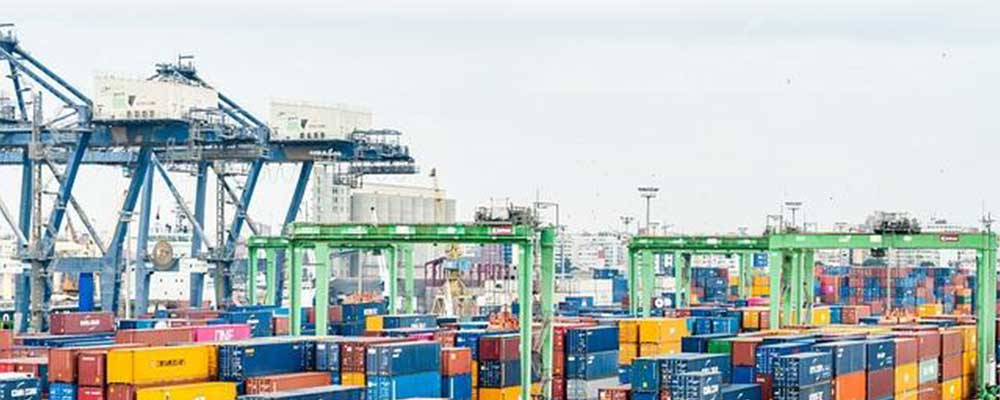
Table of Contents
- Fundamentals of Freight Insurance
- Why Do You Need Freight Insurance
- Categorize Freight Insurances by Modes of Transport & Service Package
- Categorize Freight Insurances by Liability
- Key Factors Influencing Freight Insurance Cost
- How Freight Insurance Cost Is Calculated
- Example Calculations
- Ways to Reduce Your Freight Insurance Cost
- Choosing the Right Freight Insurance Policy
- Ensure Insurance Coverage at Luckystar Logistics
- Frequently Asked Questions
Fundamentals of Freight Insurance
Freight insurance protects your goods’ financial value against loss or damage during transit. It’s a specific type of insurance that covers physical assets moving between locations.
How Freight Insurance Works
You pay a premium to an insurance provider based on the declared value of your shipment. This premium is the freight insurance cost. The insurer agrees to compensate you for the insured value if a covered event damages or destroys your cargo. You must file a claim with supporting documentation, such as the bill of lading and proof of value, to receive payment.
What Freight Insurance Typically Covers
Freight insurance policies cover numerous specific perils. Common inclusions are:
Damage from accidents like vehicle collisions or derailments
Freight insurance covers damage to goods caused by accidents during transit, such as vehicle collisions, derailments, or overturning of transport vehicles. These accidents can compromise the integrity of the cargo, and insurance compensates for the loss or repair costs that may result.
Loss from events like theft, piracy, or misplacement
In transit, goods can be lost due to theft, piracy (particularly for ocean freight in regions prone to such activity), or misplacement along the supply chain. Freight insurance helps recover the financial value of these stolen or lost items, ensuring businesses are shielded from unexpected disruptions and losses.
Destruction from natural disasters including fires, storms, and flooding
Freight insurance also protects against destruction caused by natural disasters, such as fires, severe storms, hurricanes, earthquakes, tsunamis, or flooding. These events are unpredictable but can potentially cause catastrophic damage to goods in transit, making this coverage essential for shipments moving through high-risk areas.
Coverage for Containerized Ocean Freight
If shipping via ocean freight, many policies extend to cover not only the goods but also the shipping container itself in specific circumstances. For instance, if the container collapses, falls overboard, or is lost at sea, freight insurance may cover the damages or replacement costs.
Common Exclusions in Freight Insurance
There are also special exclusions where insurance companies will refuse to compensate your loss. They vary among policies and providers but often include the following:
Losses from Improper Packaging or Inherent Vice
Insurance companies usually refuse to compensate damages by using insufficient or inappropriate materials to protect goods during transit. As for inherent vice, the term refers to the natural characteristics of certain goods that make them prone to deterioration, such as food spoiling, metal rusting, or fabric decaying under specific conditions.
Damage Resulting from Market Fluctuations
Losses stemming purely from economic factors such as shifts in market value are usually excluded. For instance, if goods arrive and their value decreases as a result of seasonal demand changes, the policy does not cover such financial losses.
Losses from War, Nuclear Incidents, or Confiscation by Authorities
Freight insurance often excludes damages or losses stemming from acts of war, terrorism, or nuclear incidents. These are considered high-risk and fall under specialized policies known as War Risk Insurance, which must be purchased separately if needed. Additionally, goods seized or confiscated by government authorities, customs officials, or during legal proceedings are usually not covered, as such events often involve regulatory or non-accidental issues outside the control of the insurer or shipper.
Why Do You Need Freight Insurance
Many SMEs (small and medium-sized enterprise) hesitate about whether or not to purchase insurance coverage for their cargo in international trade because of cost considerations. These vital features of freight insurance can convince you to seek such services and ensure the safety of your cargo.
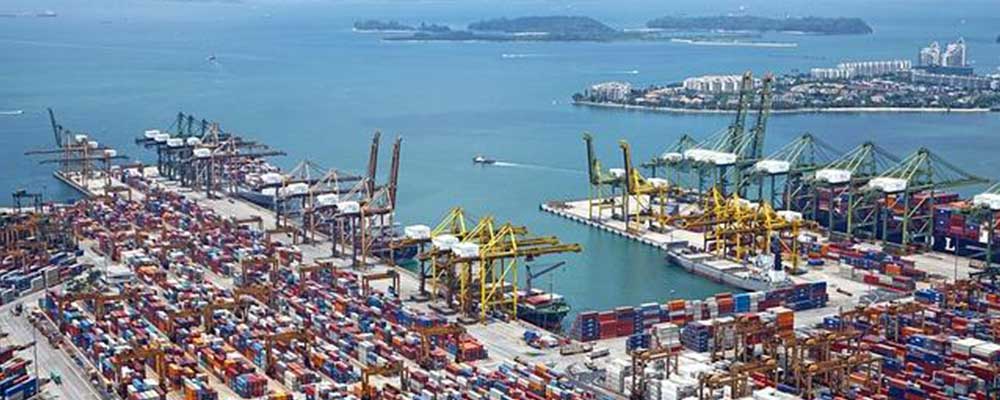
Default Insurance Cover is Not Enough
It’s important to distinguish freight insurance from the basic liability all carriers hold. Legally, carriers are required to have “Hull Insurance”, which covers their own assets and crew, as well as carrier liability, which is a transportation company’s legal responsibility for lost, damaged, or delayed cargo in their control. It has maximum compensation limits, often based on the cargo’s weight, and typically requires proof of carrier negligence for a claim to be paid. These do not automatically cover the full value of your goods and often exclude common perils like storms or theft. Freight insurance is a separate contract you secure to protect your financial interest in the shipment itself.
Therefore, relying solely on default coverage leaves a significant gap, potentially resulting in substantial financial loss if an incident occurs. Securing additional freight insurance ensures you are fully protected against the unexpected, providing crucial peace of mind and financial security for the entire journey of your goods.
Coverage for Special Scenarios
You require freight insurance for specific high-risk shipments.
- Safeguard fragile or high-value goods like electronics, machinery, or luxury items.
- Protect cross-border shipments facing risks like customs delays or extended transit times.
- Insure time-sensitive shipments where any loss causes significant business disruption.
- Facilitates Customs Clearance: In many countries, customs duties are calculated using the CIF value (Cost, Insurance, and Freight) of your goods. Having proof of insurance can prevent customs officials from applying higher duty valuations, potentially saving you money and avoiding delays.
Support for Operational Continuity
By securing freight insurance, you safeguard your supply chain from substantial downtime. Losses from damaged or lost goods can disrupt operations, delay customer orders, and result in a capital chain rupture, which severely harms the operations of SMEs. Freight insurance allows you to recover costs quickly, ensuring your business can continue operating smoothly with minimal interruption.
Peace of Mind for Your Business
Shipping goods can be unpredictable, with a variety of risks that may arise during transit. Freight insurance provides peace of mind by reducing uncertainty and assuring you that your business is protected against financial shocks. This allows you to focus on core business activities without the added worry of potential freight-related losses.
Categorize Freight Insurances by Modes of Transport & Service Package
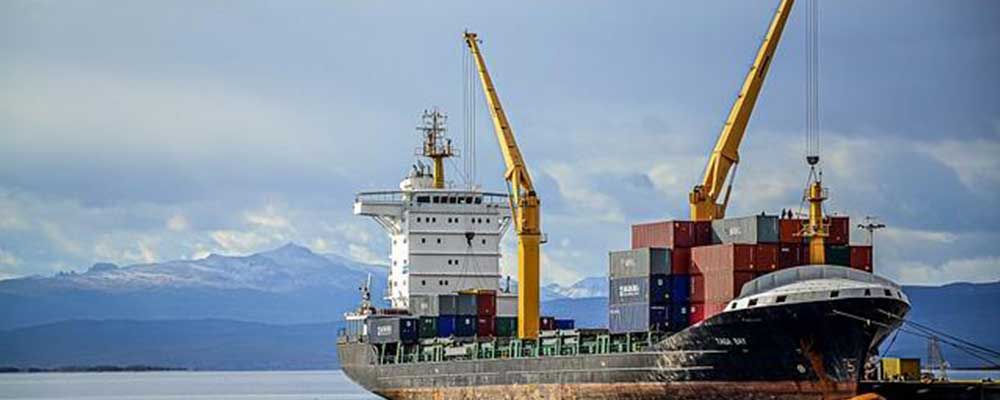
Marine Cargo Insurance
Consider getting marine cargo insurance if you’re transporting cargo over the sea or by airlines. This type of insurance covers the loss and damage of goods due to bad weather, piracy, and damage during the loading and unloading of cargo. This insurance is usually international and can be applied in multiple countries.
A key coverage in marine insurance is General Average. This is a maritime law principle where if a captain intentionally sacrifices some cargo (e.g., jettisoning containers to save a ship in a storm), all other cargo owners share the cost of the loss. Without insurance that includes this coverage, you could be liable for a substantial, unexpected payment.
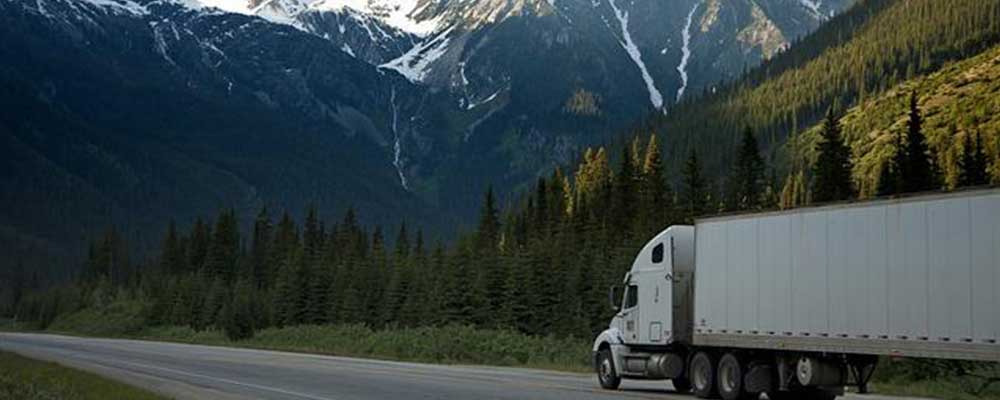
Land Cargo Insurance
This type of insurance is specific to shipments on land, such as through trucks and rail transport. The insurance often covers accidents during shipment, losses due to theft, and subsequent losses. If the shipment involves the cargo being stored on a truck overnight, it’d be best to ensure that your insurance covers theft.
In addition, it’s essential to note that land insurance is restricted to a particular jurisdiction. This means that you can’t use land cargo insurance for international shipments; in such cases, it’d be best to get additional protection.
Single Coverage
This is a type of freight insurance coverage that is tied to one distinct shipment, with the details clearly defined in the policy.
It is a great insurance option for someone who ships freight every once in a while. The single coverage is suitable for small and big businesses as long as they ship cargo irregularly. In addition, the coverage extends through the entire shipment of cargo.
Open Coverage
On the other hand, if you’re a frequent shipper, it’d be best to get open coverage. Instead of buying insurance for a single shipment, an open policy provides ongoing coverage for a defined duration, such as a year. Nonetheless, it’d be best if you also considered other factors in the insurance policy, such as a limit on the number of shipments done in a year.
One of the benefits of getting open coverage is that it offers coverage until the premium is terminated, saving time by reducing repeated work. Depending on your shipping needs, you can also review and renew your premium annually. The open coverage is also ideal for large-volume shippers because it’s more cost-effective and efficient.
This type of insurance is specific to shipments on land, such as through trucks and rail transport. The insurance often covers accidents during shipment, losses due to theft, and subsequent losses. If the shipment involves the cargo being stored on a truck overnight, it’d be best to ensure that your insurance covers theft.
In addition, it’s essential to note that land insurance is restricted to a particular jurisdiction. This means that you can’t use land cargo insurance for international shipments; in such cases, it’d be best to get additional protection.
Categorize Freight Insurances by Liability
You select a freight insurance policy based on your shipment’s specific risks and value. The primary types are All-Risk, Named-Peril, and Freight Charge Insurance.
All-Risk Freight Insurance
All-Risk freight insurance provides the most comprehensive protection. It covers almost all risks of physical loss or damage except for those explicitly excluded in the policy. This policy type suits high-value shipments like electronics or machinery. All-Risk freight insurance costs are typically the highest due to the extensive coverage.
However, some marine policies are issued on a ‘Free of Particular Average’ (FPA) basis. This means they will not cover partial losses or damage unless the vessel has been stranded, sunk, burned, or in a collision. So be sure to always verify the specific terms.
Named-Peril Freight Insurance
Named-Peril freight insurance covers only the specific risks listed in your policy document. It protects against events like fire, theft, or vessel sinking. This option is more affordable than All-Risk coverage. Named-Peril freight insurance is a good choice for lower-risk shipments where you want protection against a few prioritized hazards.
Freight Charge Insurance/Transfer Insurance
This is a specialized policy that protects the cost of the freight itself. It reimburses you if the carrier fails to provide the service after payment or if the goods are never delivered. This is particularly useful when your freight charges are as significant an investment as the goods themselves.
Key Factors Influencing Freight Insurance Cost
Your freight insurance cost depends directly on the specific characteristics of your shipment. Three primary factors determine your final cost.
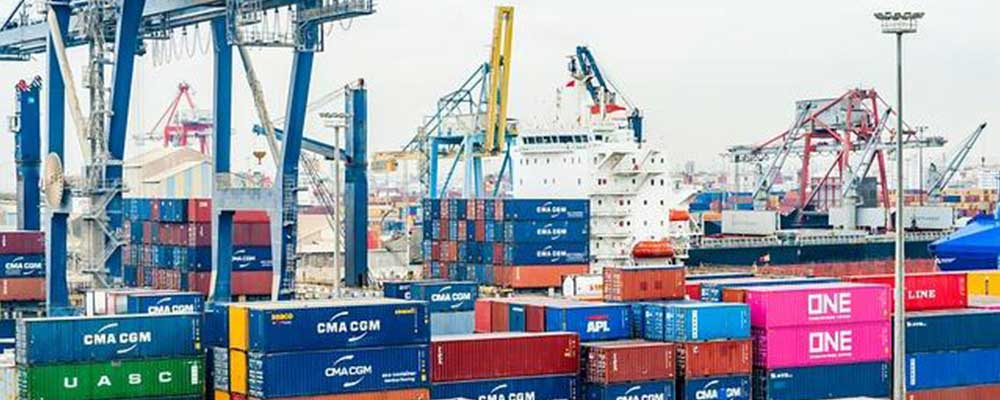
Value of Goods
The declared value of your goods is the most significant factor in your insurance cost. Insurers base premiums directly on this valuation. Higher-value shipments, such as electronics or machinery, incur higher premiums. Lower-value goods attract proportionally lower rates.
Shipping Method and Route
Your chosen shipping method and route directly influence the risk assessment and associated cost.
- Air freight generally carries higher premiums due to the high value of goods typically shipped and the inherent risks of air transit.
- Ocean freight costs reflect longer transit times and greater exposure to weather-related damage.
- Land freight premiums vary by the risk level of specific routes, with increases for areas prone to piracy or political instability.
Type of Coverage
The extent of protection you select establishes a baseline for your insurance cost.
- Basic coverage protects against major incidents like collision or fire, but it typically excludes theft.
- Broad coverage adds protections for theft and partial losses.
- All-risk coverage provides the most comprehensive protection against nearly all perils, except for specific policy exclusions.
How Freight Insurance Cost Is Calculated
Freight insurance cost uses a standard formula for premium calculation. You determine the premium by multiplying the insured value, the rate, and the coverage factor.
The Core Calculation Formula
As a general industry benchmark, the insurance premium is typically calculated as a percentage of the total insured value (goods + freight), often falling between 1% and 3%. The exact rate within this range depends on the risk profile of your product category. The formula for calculating your premium is direct: Premium = Insured Value × Rate × Coverage Factor.
- Define the insured value as the total declared worth of your cargo.
- Apply a rate percentage that reflects the shipment’s specific risk level.
- Adjust the final figure using a coverage factor based on your policy’s terms.
Insured Value
The insured value represents the cargo’s full declared worth. It includes the cost of goods, packing fees, and transport charges. A higher declared value increases your premium proportionally.
Rate
The rate is a percentage set by the insurer to reflect the shipment’s risk. This rate varies significantly based on factors like the type of goods, the transport mode, and the route’s risk level.
Coverage Factor
The coverage factor adjusts the premium based on your policy’s specifics. An “all-risk” policy increases this factor to account for its comprehensive nature, while a “named-peril” policy typically uses a lower factor.
Example Calculations
These examples illustrate the formula’s application with real numbers, with a new concept introduced in the second example.
| Scenario | Goods Value | Freight Cost | Insured Value Calculation | Rate | Premium |
|---|---|---|---|---|---|
| Standard Cargo | $100,000 | Included in Value | $100,000 | 0.5% | $500 |
| Cargo with Separate Freight | $5,000 | $1,200 | $6,820 | 0.6% | $40.92 |
For the second example, the insured value is calculated using the standard trade formula of CIF (Cost, Insurance, Freight) plus a 10% markup. This 10% addition is not an extra fee but a standard allowance to cover the insured’s expected profit on the shipment, ensuring they are fully compensated for their financial interest if a loss occurs.
The calculation is as follows:
- Cost of Goods + Freight: $5,000 + $1,200 = $6,200
- Plus 10% for Expected Profit: $6,200 × 110% = $6,820
The premium is then calculated as: Insured Value × Rate = $6,820 × 0.006 = $40.92.
Ways to Reduce Your Freight Insurance Cost
You can implement several strategies to manage your freight insurance cost-effectively. These methods focus on mitigating risk and demonstrating responsible shipping practices to insurers.
Complete Documentation
For insurance companies, a client that only provides the bare minimum of documents required implies potential risks, which lead to higher premiums. Therefore, maintaining flawless records—like pre-shipment inspection reports and signed Bills of Lading noting the condition at loading—is critical. This not only streamlines the claims process but also demonstrates to insurers that you are a low-risk client, which can help in negotiations.
Proper Packaging
As improper packaging is a common exclusion, demonstrating high-quality packaging (as mentioned in the ‘Exclusions’ section) can also lower your risk profile and reduce premiums.
- Packaging materials include reinforced boxes, waterproof wrapping, and adequate cushioning for fragile items.
- Handling procedures involve training staff on proper techniques and clearly labeling sensitive cargo.
Comparing Insurance Providers
Obtain multiple quotes to find the best balance of price and coverage for your freight insurance. Evaluate each policy based on more than just the premium cost.
- Analyzing policies involves scrutinizing coverage limits, exclusions, and claims support services.
- Selecting a provider depends on their financial stability, industry reputation, and value-added services.
- Negotiating with insurers becomes possible when you present your strong risk management practices.
Choosing the Right Freight Insurance Policy
Evaluate your specific risk factors before selecting a policy. Assess the nature of your goods, the transport mode, and the entire shipping route for potential vulnerabilities.
Review Policy Terms Thoroughly
It is not enough to simply purchase a policy. Understanding its specifics is critical to ensuring true protection. Scrutinize the coverage scope and all listed exclusions to avoid unexpected gaps. Pay close attention to deductibles, which directly impact your out-of-pocket costs during a claim.
Furthermore, clarify key details such as the insured value basis (e.g., invoice value, resale value) and the specific conditions that must be met for a claim to be valid. A thorough review prevents the unfortunate surprise of a denied claim when you need support the most.
Work with Experienced Insurers
The provider you choose is as important as the policy itself. Partner with insurers who specialize in logistics and understand the unique risks of the supply chain, preferably a freight forwarder. Select providers known for offering transparent policy terms and, crucially, a proven and reliable claims process.
An experienced insurer will not only help you identify the right coverage but also provide expert guidance in the event of a loss, ensuring a fair and efficient resolution. Their industry knowledge can be invaluable in navigating complex situations.
Use Integrated Service From Freight Forwarder
Many businesses simplify the process by sourcing their insurance directly through their freight forwarder. This integrated approach offers significant advantages. As logistics experts, forwarders understand the risks your shipment faces and can often secure competitive rates from their partner insurers. More importantly, they are adept at handling the entire claims process on your behalf, acting as a single point of contact.
This streamlines the entire experience, saving you time and administrative effort while leveraging their expertise to ensure a smooth resolution.
Ensure Insurance Coverage at Luckystar Logistics
Ultimately, the right freight insurance is a strategic investment in your business’s stability. The relatively small cost of insurance is the price of certainty, allowing you to navigate global logistics with confidence.
Here at Luckystar Logistics, we safeguard your shipment with favorable cargo insurance rates and great freight shipping insurance services. Operating as a freight forwarder and insurance broker at the same time, we are your best choice for streamlined solutions. Send us a quote today to learn more!
Frequently Asked Questions
What is the actual process for filing a freight insurance claim, and how long does it typically take to get paid?
The process usually involves notifying the insurer immediately, submitting a formal claim form, and providing documents like the bill of lading, commercial invoice, and proof of loss (e.g., photos, a survey report). The timeline for payment can vary from a few weeks to several months, depending on the complexity of the claim and the responsiveness of all parties involved.
If my shipment is only partially damaged, how is the compensation calculated?
Partial damage is common, and its compensation is typically based on the cost of repairs or the depreciated value of the damaged goods. The policy will specify the method for calculating a “particular average” loss, which is different from a total loss.
Are there any specific goods that are particularly difficult or expensive to insure?
Items like perishable foods, hazardous materials, fine art, antiques, or high-end electronics often face higher premiums, stricter packaging requirements, or even certain coverage exclusions due to their sensitive nature.
Can I purchase freight insurance after my shipment has already departed?
Generally, insurance must be arranged before the shipment commences its journey. It is very difficult, and often impossible, to get coverage for a shipment that is already in transit, as the insurer cannot assess the risk for an event that may have already started.
